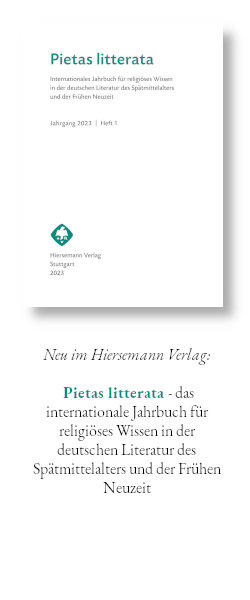oracio generalis sororis machthildis
Philologisches Bemühen in der Erfurter Kartause um den authentischen Wortlaut eines Fürbittgebets aus Mechthilds von Magdeburg Lux divinitatis als Ausdruck eines biographischen Textverständnisses
DOI:
https://doi.org/10.36191/mjb/2022-57-2-3Schlagworte:
Mechthild of Magdeburg, Prayer, Retextualisation, Textual Authenticity, Autobiographical Reading, Erfurt CharterhouseAbstract
Balázs J. Nemes: oracio generalis sororis machthildis. The Erfurt Carthusians’ Philological Enquiry into the Authentic Wording of an Intercessory Prayer in Mechthild of Magdeburg’s Lux divinitatis as a Biographical Reading
No interest in the author, in the original or in the reconstruction of authentic wording. These were the premises of a small volume by Bernard Cerquiglini, who in the 1990s caused a considerable stir in medieval German studies to reconsider the characteristics of medieval textuality. Based on examples from the branch of the Latin transmission of Mechthild of Magdeburg’s Das Fließende Licht der Gottheit, this article seeks to demonstrate that constellations of reception exist, which are fuelled by an interest in the author and in the original indicating a philological endeavour to (re‑)construct the authentic wording. The analysis focuses on a prayer from the Lux divinitatis, which shows that it was not only compared to a German exemplar, but also corrected on the basis of the same exemplar. The time and place of this critical work will be considered by means of the textual history and history of transmission of the prayer as well as further textual witnesses. In relation to the textual origins of the prayer under discussion, the hypothesis is put forward that the seemingly ›reconstructive approach‹ of the Latin wording to Mechthild’s ipsissima verba in the vernacular was chosen in order to provide philologically sound access to the ›authentic experience‹ preserved in the original wording of Mechthild’s act of devotion.


